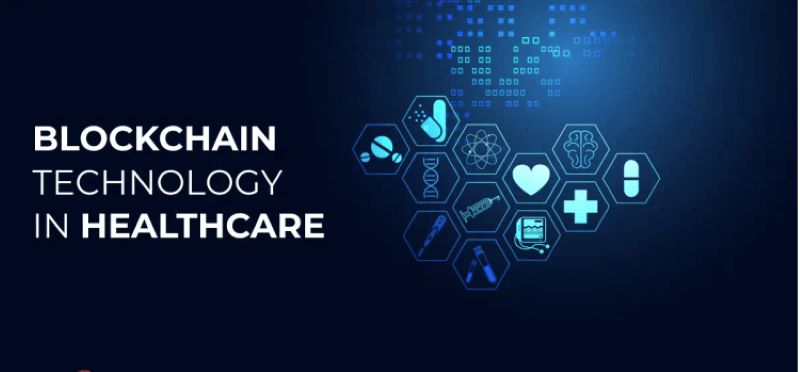The Impact of Healthcare Blockchain Technology on the Medical Industry
Blockchain technology is often associated with cryptocurrencies like Bitcoin and Ethereum, but its potential reaches far beyond digital currencies. One area where it shows great promise is in healthcare. Healthcare blockchain technology is transforming how medical data is stored, shared, and managed, offering enhanced security, transparency, and efficiency. This article delves into how blockchain is shaping the future of healthcare.

What is Healthcare Blockchain Technology?
Healthcare blockchain technology refers to the use of blockchain’s decentralized and immutable ledger to manage and protect health-related data. Blockchain allows for secure, transparent, and tamper-proof data storage, making it an ideal solution for an industry like healthcare, where patient privacy and data accuracy are critical.Key Features of Blockchain in Healthcare
Benefits of Healthcare Blockchain Technology
Integrating blockchain into healthcare systems offers numerous advantages that address some of the industry’s most pressing challenges.
Enhanced Data Security
Healthcare data is highly sensitive and often a target for cyberattacks. Healthcare blockchain technology secures patient records using cryptographic techniques, making it virtually impossible for unauthorized individuals to access or alter the data. The decentralized nature of blockchain also reduces the risk of single-point failures or large-scale data breaches.
Improved Data Sharing and Interoperability
One of the major challenges in healthcare is the lack of interoperability between different systems. Blockchain can create a unified platform where patient records are easily shared among authorized healthcare providers, regardless of the systems they use. This can lead to more coordinated care, faster diagnoses, and fewer errors.
Better Patient Control Over Data
Blockchain technology empowers patients to have more control over their health data. Patients can decide who gets access to their medical information and can track how their data is used. This level of control enhances privacy and builds trust between patients and healthcare providers.
Applications of Blockchain Technology in Healthcare
Blockchain technology can be applied in various areas of healthcare to improve efficiency, transparency, and security.
Secure Medical Records
With healthcare blockchain technology, medical records are stored in a secure, decentralized ledger, ensuring that all updates are accurately tracked. Authorized healthcare providers can access up-to-date records quickly, improving the quality of care. This system also helps to reduce paperwork and administrative inefficiencies.
Drug Supply Chain Management
Blockchain can also be used to track the entire journey of pharmaceutical products, from manufacturers to consumers. This transparency helps to eliminate counterfeit drugs and ensures that the medication reaching patients is genuine and safe.
Clinical Trials and Research
Clinical trials generate vast amounts of data that need to be transparent and trustworthy. Blockchain ensures the accuracy and integrity of clinical trial data by providing a tamper-proof record. This improves the credibility of research results and helps prevent data manipulation.
Challenges of Implementing Blockchain in Healthcare
While the potential of healthcare blockchain technology is significant, there are also challenges to its widespread adoption.
Regulatory Compliance
Healthcare is a heavily regulated industry, and implementing blockchain solutions must comply with privacy laws like HIPAA in the United States and GDPR in Europe. Ensuring that blockchain systems meet these regulatory requirements can be complex, especially when dealing with sensitive patient data.
Scalability
Blockchain networks can face scalability issues, particularly when processing large volumes of data. Healthcare systems deal with massive amounts of data daily, and blockchain networks must be capable of handling this load efficiently without compromising performance.
Integration with Existing Systems
Many healthcare providers use legacy systems for data management. Integrating blockchain technology into these systems can be a challenge and may require significant changes to existing workflows.
The Future of Healthcare Blockchain Technology
Despite the challenges, the future of healthcare blockchain technology looks promising. As the technology continues to evolve, it is expected to become more scalable and easier to integrate with existing healthcare systems. Many experts believe that blockchain will play a key role in creating more secure, efficient, and patient-centered healthcare systems.
Collaboration with Other Technologies
Blockchain will likely be combined with other technologies, such as artificial intelligence (AI) and the Internet of Things (IoT), to further enhance healthcare services. For example, blockchain could be used to secure data from wearable health devices, while AI could analyze this data to provide personalized healthcare recommendations.Healthcare blockchain technology is set to revolutionize the way medical data is managed, offering more security, transparency, and patient control. From securing medical records to improving drug supply chains and clinical research, blockchain has the potential to solve some of the most pressing issues in the healthcare industry. While challenges remain, the adoption of blockchain in healthcare is growing, and it will play a pivotal role in shaping the future of medical services.
Read more: https://blockchainsolve.com/blockchain-technology-in-healthcare/
